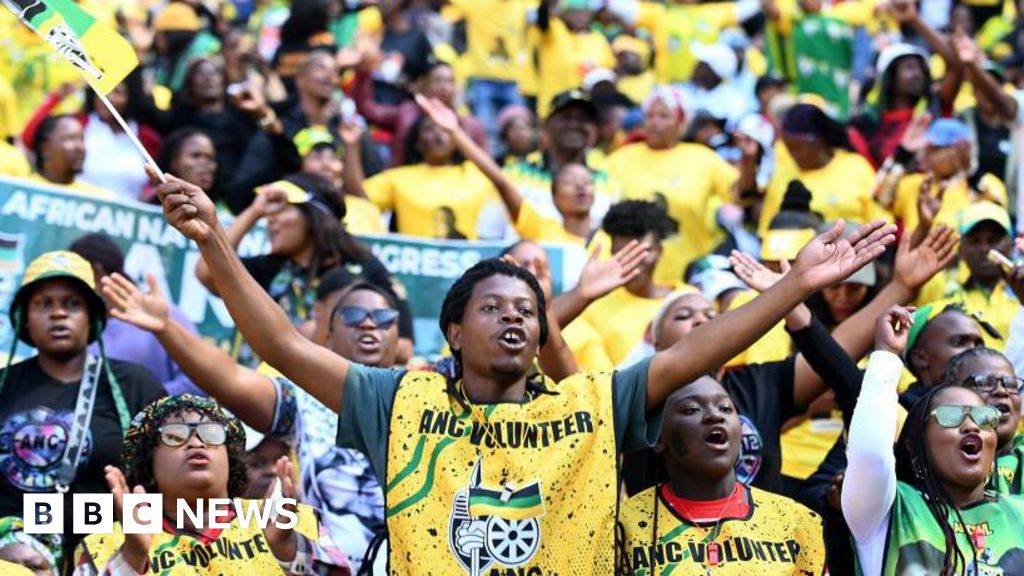World
South Africa’s ANC edging closer to forming unity government – BBC News

Image source, Getty Images
- Author, Barbara Plett Usher
- Role, BBC Africa Correspondent
- Reporting from Cape Town
-
With just hours to go before South Africa’s parliament meets for the first time since the governing African National Congress (ANC) lost its majority in last month’s elections, negotiations are still continuing over the formation of a new government.
The ANC says it has made a “breakthrough” on forming a government of national unity but it was too early to give details.
A spokesman for the main opposition Democratic Alliance, Solly Malatsi, told the BBC that the “major aspects” for a framework deal had been concluded but “we are not there yet.”
One of parliament’s first duties is expected to be a secret vote on whether Cyril Ramaphosa remains president.
Although a coalition deal has still not been finalised, Mr Ramaphosa is expected to be re-elected.
The ANC lost its parliamentary majority for the first time in 30 years in the 29 May election, getting 40% of the vote.
This means it required the backing of other parties for Mr Ramaphosa to remain in power.
“We are talking to political parties as we speak right now,” ANC secretary general Fikile Mbalula told reporters after a meeting of the party’s top officials on Thursday evening, adding he could not give further details.
He did say it would be a move to the political centre, because breakaway ANC parties on the left have said they will not join a coalition.
He said parties including the pro-business DA had agreed on forming a government of national unity.
But the ANC and DA have not agreed on how exactly they will cooperate, Mr Mbalula added.
“If the DA were to get some of these things that it wants it means the ANC will be dead,” he said.
The DA came second in the election with 22% of the vote.
President Ramaphosa has previously accused the DA – which draws its support mainly from racial minorities – of being “treasonous” and “reactionary”.
Any deal with the DA would be unpopular among many ANC activists.
The party is an advocate of free market economics, which is at odds with the ANC’s left-wing traditions, and has a reputation for representing the interests of the white minority.







:max_bytes(150000):strip_icc()/roundup-writereditor-loved-deals-tout-f5de51f85de145b2b1eb99cdb7b6cb84.jpg)


